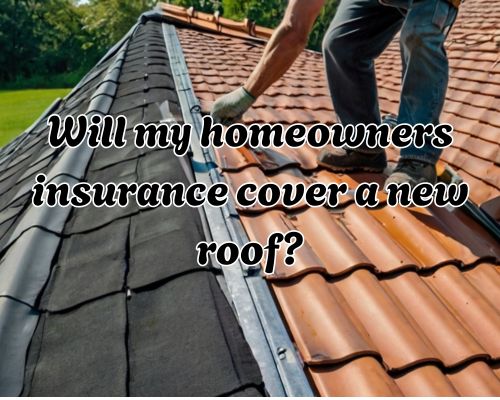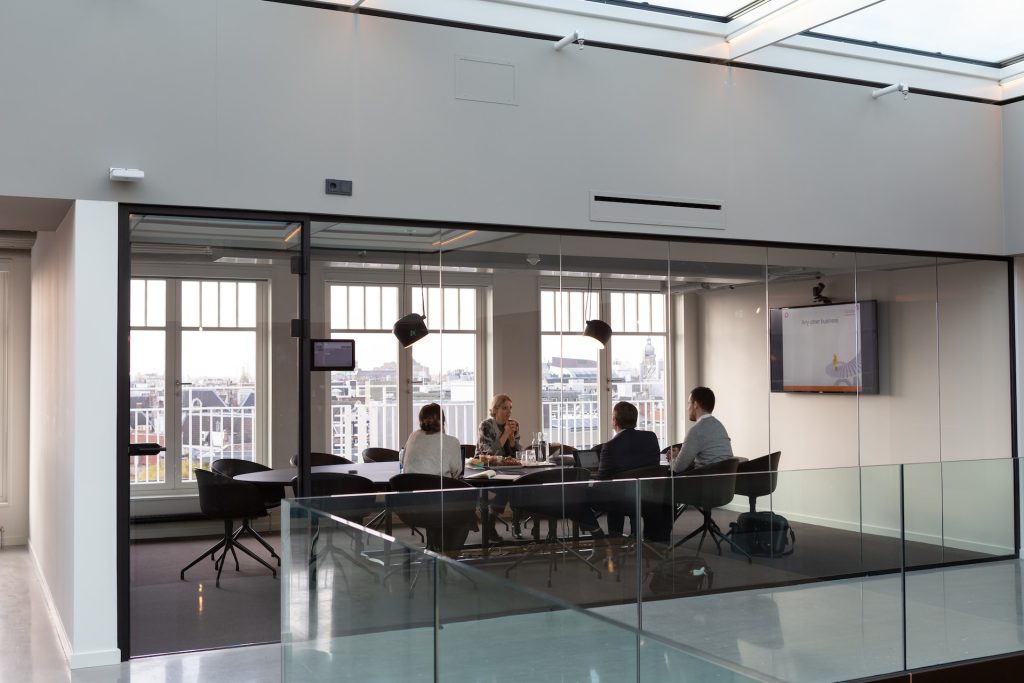
Will My Homeowners Insurance Cover a New Roof? A Comprehensive Guide for New Jersey Homeowners
When the time comes to replace your roof, you might wonder, “Will my homeowners insurance cover a new roof?” This is an important question that many homeowners face, especially when living in regions like New Jersey, where extreme weather conditions such as storms, heavy snow, and hail can take a toll on roofing structures. Understanding how your homeowners insurance works in these situations can save you time, money, and frustration.

With CJ Commercial Roofing NJ, we will dive deep into whether your homeowners insurance policy in New Jersey will cover the costs of replacing a damaged roof. We’ll also touch on the factors that impact coverage, the types of insurance policies available, and what steps you can take to ensure your roof replacement process goes smoothly.
Understanding Homeowners Insurance and Roof Coverage
Homeowners insurance is designed to protect your property from various types of damage, including damage to the roof. However, whether or not your policy will cover a new roof depends on several factors, including the cause of the damage, the type of policy you have, and the age and condition of the roof itself.
In New Jersey, homeowners insurance typically covers roof damage caused by unexpected events such as storms, fire, or vandalism. However, it is important to remember that insurance policies vary, and not all situations will result in coverage.
1. Roof Damage Caused by Sudden Events
Homeowners insurance policies in New Jersey generally cover roof damage that occurs due to sudden and accidental events. This includes:
- Storm Damage: Roofs often get damaged during severe weather conditions such as hurricanes, thunderstorms, and snowstorms, which are common in New Jersey.
- Hail Damage: Hailstorms can cause significant damage to roofs, especially older ones.
- Fire or Lightning Damage: Roofs damaged by fires, lightning strikes, or even electrical surges may be covered.
- Vandalism: In the case of vandalism or theft that causes roof damage, homeowners insurance could cover the repairs or replacement.
If your roof was damaged by any of these events, your insurance may cover the full or partial cost of replacing the roof, depending on your policy’s terms.
2. Roof Damage Caused by Wear and Tear or Negligence
On the other hand, if your roof is damaged due to normal wear and tear, lack of maintenance, or negligence, homeowners insurance is unlikely to cover the cost of a new roof. Insurance companies generally do not cover damage caused by:
- Neglected Roof Maintenance: Failure to repair minor issues over time can lead to more severe damage. Insurance typically won’t cover the costs if you haven’t properly maintained your roof.
- Old Age: If your roof is nearing the end of its lifespan, the insurance company may argue that the damage is due to natural aging, which isn’t typically covered under a standard homeowners insurance policy.
In such cases, it’s important to maintain your roof regularly by checking for leaks, missing shingles, or other issues that could develop into more expensive problems. For professional needs, just visit https://cjcommercialroofingnj.com/.
Types of Homeowners Insurance Policies in New Jersey
There are several types of homeowners insurance policies available in New Jersey, and the level of coverage can vary depending on the policy you choose. Let’s look at the most common types of coverage and how they impact roof replacement.
1. HO-3: The Standard Homeowners Insurance Policy
The HO-3 policy is the most common type of homeowners insurance policy in New Jersey. Under an HO-3 policy, your home is covered for all types of damage except for certain exclusions. Roof damage caused by sudden events such as storms or fire would typically be covered under this policy.
2. HO-5: Comprehensive Coverage
An HO-5 policy provides the most extensive coverage. It covers your home and belongings against almost all risks except for exclusions. If your roof is damaged by a covered event, the insurance company will usually pay for the full replacement, minus your deductible.
3. HO-1: Basic Coverage
This is the most basic homeowners insurance policy and offers the least amount of coverage. With an HO-1 policy, you may not get coverage for roof damage unless it’s caused by specific, covered events. It’s important to understand what your policy includes before assuming that your roof will be covered.
Does Homeowners Insurance Cover Roof Replacement or Just Repairs?
One of the most important things to understand is whether your homeowners insurance will cover the full replacement of your roof or only repair costs. This depends on the specifics of your policy and the damage to your roof.
- Repairs: If the damage is repairable, your insurance will typically cover the cost of fixing the roof. This means replacing damaged shingles, fixing leaks, or patching up holes.
- Full Replacement: If the roof is beyond repair and needs to be completely replaced, homeowners insurance might cover the entire cost of replacement, minus your deductible, depending on the circumstances.
Keep in mind that the age and condition of your roof can play a significant role in determining whether your insurance will approve a full replacement or just partial repairs.
Understanding Roof Depreciation and Actual Cash Value (ACV)
When it comes to roof replacement, understanding how depreciation works in your policy is essential. Many homeowners insurance policies pay for the actual cash value (ACV) of your roof, which takes into account depreciation. This means that if your roof is several years old, your insurance payout may be reduced based on the roof’s age and condition.
If you have replacement cost coverage, however, your insurance will cover the full cost of replacing your roof with a new one, without factoring in depreciation. Replacement cost coverage is more expensive but can save you money in the long run, especially if your roof is relatively old.
Steps to Take Before Filing a Roof Damage Claim in New Jersey
If you believe that your roof has been damaged and might be covered by homeowners insurance, there are several steps you should take to ensure a smooth claims process:
- Inspect the Damage: Take a close look at your roof and document any visible damage. Take photos and videos of the damage, as this will help support your claim.
- Contact a Roofing Professional: Reach out to a licensed roofing contractor in New Jersey to assess the damage. They can provide an estimate for repairs or replacement.
- Review Your Policy: Before filing a claim, review your homeowners insurance policy to understand your coverage and deductibles.
- File a Claim: Once you’ve gathered all necessary information, contact your insurance company to file a claim.
- Work with the Adjuster: An insurance adjuster will inspect the damage and determine if it’s covered under your policy. Be sure to provide them with all necessary documentation.
Conclusion
In conclusion, whether your homeowners insurance will cover a new roof in New Jersey largely depends on the cause of the damage and the terms of your insurance policy. Roof damage caused by sudden, unforeseen events like storms, fire, or vandalism is often covered, while damage from wear and tear or neglect usually is not. It’s important to understand your policy, maintain your roof, and consult a professional when necessary to ensure you’re properly covered.
By taking the right steps, such as reviewing your policy and working with a trusted roofing contractor, you can navigate the roof replacement process with confidence, knowing that your insurance will provide the protection you need.
If you’re a New Jersey homeowner looking to replace your roof, don’t hesitate to contact a local insurance agent or roofing professional to discuss your options and ensure that your home is well-protected.


